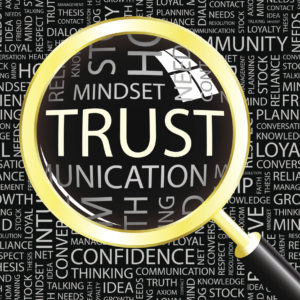
It feels as though there is less and less we can count on these days, doesn’t it? I don’t know if that is true or not, but I do notice that everyone seems to be looking for solid ground anywhere they can find it (including me!). We look for it in our jobs, our families, our homes, our religion (or lack of), and our relationships. And yet sometimes it feels like no matter what we grab onto, our fingers soon slip off and we find ourselves untethered yet again.
The good news is that this is often only our perception–and it is certainly not the whole story. Perception pretty much makes up our realities, doesn’t it? A great deal of my work with clients is talking about what exactly “solid ground” is, and what it isn’t. And what we usually find out, together, is that not only is solid ground never perfectly solid, but that it doesn’t even have to be to hold us up.
With that in mind, this article looks at three examples of solid ground–things you can count on, and how to access and utilize them to help you though the constant change and uncertainties that surround us.
TRUST: I start with Trust because it comes up in nearly all the work I do as a psychotherapist. Everybody wants to feel it, but it seems slippery, elusive. It’s as if you can’t even trust trust! But I say that the problem with trust is not trust itself, but what people expect from it–they are often asking for something that trust cannot provide: guarantees.
Trust cannot deliver guarantees because it is not based solely on facts--there are elements of belief and faith in it. Beliefs are decisions we make, about how to think and feel about things, that do not have to be based on fact. We often make them for the simple reason that they help us feel safe and secure. Here are some examples of beliefs:
- I believe that I will wake up tomorrow morning.
- I believe that the Earth will keep turning.
- I believe in Santa Claus, or God, or the Flying Spaghetti Monster.
So why would I bring up trust as something that you can count on? Because you can count on it if it is applied in a way that honors it not as something based in truth, but instead based on an agreement.
Stan Tatkin, who I often reference in my articles, offers a great example of how to best build and utilize trust in a relationship. He says that it while most of us trust that our partner(s) will put our own needs before theirs, this is a misuse of trust, because how can we believe that someone, even someone who loves us, would always set their needs aside to meet ours? While you can’t count on the other putting your needs first at all times, you can count on them always putting the relationship needs first.
This type of trust makes sense, because when someone puts relationship needs first, ideally they are also getting their needs met as an individual. (A relationship can thrive only if the individuals also thrive.)
For example, if a couple decide that the relationship needs them to be sexually exclusive with one another, that could benefit the individual by keeping them safe from outside emotional entanglements, surprise pregnancies, and even STDs. This example can also help each individual to become more curious about their own, and their partner’s, evolving erotic and sexual needs, leading to a varied and rich sexual experience rather than easy, familiar pleasure with an outside lover.
To summarize, when all individuals in a relationship agree to put the relationship needs first, they are building a trust that they can count on because, when applied, it benefits everyone in the relationship.
I have used this approach with couples coming in about an infidelity. What they are doing to solve the problem usually does not work because it is one person trying to get the other to agree to something they are not invested in as an individual. Trusting that your partner won’t cheat on you only works if that is an agreement you are both willing to commit to 100%, as Stan suggests. Otherwise one is relying on trust to do something they need to be doing for themselves: being a partner who is not cheated on!
YOURSELF: I am a big fan of Immanuel Kant and his philosophy of life. Mark Manson wrote a fun article about this philosophy that explains why it is important, but if you want my understanding of it, here is it:
Relying on something outside of yourself for moral guidance will let you down–the most reliable gauge you have is yourself. You consistently commit to, and act on, a moral code not because someone tells you how you should live your life, but because you have concluded for yourself that this is best way for you to live your life.
That conclusion is based on what is important to you–your values, and that importance will keep you driving in your self-painted lane. Another way of putting it is that you figure out, through observation and trial and error, what works for you. And what works for you depends on where you are going, what direction you are headed, what you are up to in life.
I bring this into this article because you always have yourself–even when outside supports fail you. If you foster your inner wisdom, your intuitive knowing, it will be a resource that you can count on no matter what happens.
I bring this up with clients who come in struggling with unresolved resentments towards others. It is not always advisable to confront those who have hurt us in the past, but the good news is that we don’t need to confront them, we can heal within ourselves by applying compassion. Compassion will never let you down, unlike some of the people in our lives.
In your relationship, you can apply this reliance on yourself in a way that benefits you as an individual, AND the relationship. When you do so, when you stay committed to you your values , and you don’t have to get the response you want from your partner in order to stay on your moral course. This can have a very powerful and positive effect on your life, your partner, and on the relationship!
SELF-REGULATION: What is best for you is not always best for your partner, and that is okay sometimes. This means that at times you will be upset with them and they won’t be able to soothe that upset. You will be well prepared for these inevitable disappointments if you have the ability to self-regulate.
What is self-regulation? What it is not is being in a state of perfect calm when you find yourself in an upsetting position. As human beings, it is acceptable and appropriate to have feelings and get upset; self-regulation just means that you are able to feel your feelings and still talk about them. This requires that both your left (rational) brain and your right (feeling) brain remain online and available to you.
When we become dysregulated, we lose access to our left thinking brain and just react from our needs and feelings. This process serves to protect us, but in our relationship conflicts it usually is not helpful! We are in “fight or flight” and our number one priority is protecting ourselves. We see our partner as our enemy, not as a loved one, and disconnection from one another is imminent.
Self-regulation is one of the core elements of emotional maturity, and requires that we have the ability to stop our brain from going into fight or flight. We might use our breath, we might take a “time-out” to go for a walk or get a glass of water, or any number of ways to get our left brain working for us again. You might work with a qualified trauma therapist to resolve past negative experiences. Working on your capacity to self-regulate will keep you from relying on your partner to do this for you.
When you know that you can take care of yourself when necessary, and that you can depend on yourself when you can’t depend on others, you may notice that it is easier to be in the world. This can lessen feelings of resentment toward a partner who is not currently available to comfort or soothe you, giving you a better chance of resolving conflict and reconnecting.
Self-regulation is a skill that can turn a reactive person into a response-able adult. And we can develop this skill on our own if we did not get it growing up, so the questions is: “How badly do you want to show up as a wise, functioning adult?”
(Read more about self-regulation: Three Tips to Regulate Your Emotions)
***
I hear all the time that “the world is getting scarier”. While that may be hard to verify factually, we do “feel what we feel”, and I notice that the current fears have to do with a sense of powerlessness and lack of control, among other things.
Given that, it is easy to understand why we want something we can count on! It can be too easy to lean on empty structures or quick fixes simply because they look like they will support us, but for long-term emotional well being, it is essential that we find strategies that we can trust.
The strategies I offer in this article are all based in you, which is what makes them more reliable and accessible than outside support systems. Outside support is great, but rather than having it be the primary support, let it be supplementary. That way, as long as you have you, you will never be without! And this approach will make you a better partner, friend, and family member, since you will be more likely to give, than take, in your relaitonships.
All you are doing is giving yourself a gift that should have been given to you. Fortunately, you don’t have to wait for it any longer!

